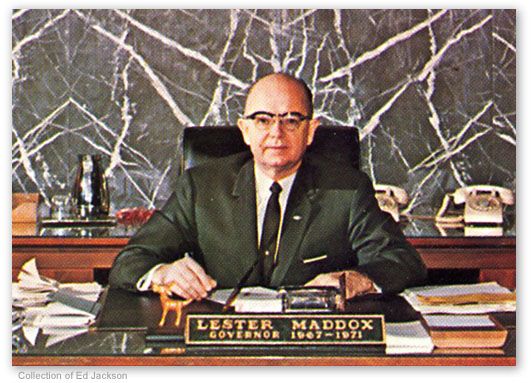In this Dispatch, Stan visits Camilla, Georgia, and looks back on one of the most notorious incidents of political and racial violence in Georgia’s history that happened there 155 years ago.
Category Archives: Politics
Podcast S6E2: Johann Neem: History and Democracy
In this episode Stan interviews Dr. Johann Neem, historian and author, whose research focuses on the history of American democracy. They discuss history in the public realm, why history has become so controversial in recent years, and where it’s all headed.

A Tribute from Across the Pond
 This past Monday Queen Elizabeth II’s funeral in London was watched by more than 4 billion people worldwide. It was an historic occasion, the likes of which has never been seen in the United States and rarely anywhere else. There were the inevitable comparisons to the funerals of Princess Diana and Winston Churchill, but neither could match the stature of this one, nor did those of her royal predecessors, all of which took place before the rise of the global media that now connects the world in ways that were unthinkable before.
This past Monday Queen Elizabeth II’s funeral in London was watched by more than 4 billion people worldwide. It was an historic occasion, the likes of which has never been seen in the United States and rarely anywhere else. There were the inevitable comparisons to the funerals of Princess Diana and Winston Churchill, but neither could match the stature of this one, nor did those of her royal predecessors, all of which took place before the rise of the global media that now connects the world in ways that were unthinkable before.
No funeral of a US president will ever rise to anything like the level of public mourning and grief that we witnessed for twelve days in Great Britain. And there are many reasons for that. American heads of state are elected leaders who, at best, now have the support of about half the electorate. There simply is no unifying figure here whose death would bring us together—not in politics, or sport, or popular culture. If you can think of one, I’m willing to listen. The sad truth is that when one former president dies, many people will gleefully dance in the streets; when another former president dies, people on the other side of the aisle will do the same. In both cases, it will be a sad and sorry spectacle for our country, but somewhat inevitable in the hyper-partisan world in which we live. In this country, politics is now a winner-take-all, no-holds-barred war to the death. It may be in the UK as well, but the Queen transcended that.
For this reason and others, I found myself over the last two weeks envious of our British friends who could and did unite around the Queen in the days after her death. I’m not so naïve as to believe that all Brits liked the Queen or support the monarch—they most certainly do not—but in that unmatched British way, those who don’t kept mostly quiet while the rest of the country paid tribute. What we witnessed instead was a dignified and historic national commemoration of a life that was unmatched in duty and service.
I asked an English friend to talk about this historic moment, to sum up what the Queen and these two weeks have meant to the British people, and what it was like to witness it all close up. What follows is an eloquent tribute.
“Uniquely, we have a constitutional monarchy where the Head of State is unelected and so is ‘above politics’ but nominally has a constitutional oversight of government business. In practice, of course, it is unlikely that the Monarch would over-ride the government, whereas an elected head of state probably would. I don’t need to give you examples of elected heads of state acting like dictators, fixing elections, and over-riding government, most of whom are already in their pockets. We have one or two people who would love to be elected our President, but do we want them? The problem is that if there was an election for head of state, one of them would get in and then probably go the way of others in other countries!
This was the Queen’s strength. She never made her political views public, never criticized the government, but undoubtedly made her views known by suggestion to the Prime Minister of the day in her weekly audiences. King Charles III, when he was the heir to the throne, often meddled in Government business and policy, giving often sensible but unwarranted advice, albeit in private, to Ministers. This will now have to stop, and it is to be hoped that he understands this.
 The other strength our late Queen showed was in her character. Although surrounded by the trappings of royalty, away from the limelight, so one reads, she was down to earth, amusing, sharp as a tack, highly intelligent and a thoroughly nice person with a backbone of steel. She had the unfailing knack of getting on with all she met, and this can’t have been easy on State visits: Nicolae Ceausescu, Vladimir Putin, Xi Jinping, to mention a few and then, of course, at the Commonwealth conferences there were people like Robert Mugabe!
The other strength our late Queen showed was in her character. Although surrounded by the trappings of royalty, away from the limelight, so one reads, she was down to earth, amusing, sharp as a tack, highly intelligent and a thoroughly nice person with a backbone of steel. She had the unfailing knack of getting on with all she met, and this can’t have been easy on State visits: Nicolae Ceausescu, Vladimir Putin, Xi Jinping, to mention a few and then, of course, at the Commonwealth conferences there were people like Robert Mugabe!
I believe that her crowning show of tact and diplomacy was shaking hands with Martin McGuinness, a reformed senior member of the IRA. This act did more than anything else to find a solution to peace in Northern Ireland
The issue for the future is whether or not Charles can continue in that vein. He will never be his mother, but on the strength of the last few days, while he might not have all her qualities, he has shown an awareness, compassion, and sensibility which I don’t think many people thought he possessed. All this while grieving in public for a mother he adored.
The Queen’s funeral was watched by 28 million people in the UK, a quarter of a million filed past her coffin as it lay in state in Westminster Hall and the numbers who witnessed the coffin as it was carried on its various journeys were impossible to count. One only has to look at the TV coverage to see the numbers involved. This perhaps will be her greatest legacy, that in her death she united the country. Divisions of race, creed, and culture were ignored, and people came together, some in grief and some not, to remember her.
The King’s Consort, Camilla, summed it up. When the Queen came to the throne, she was a lone woman in a male-dominated club of world leaders. When she died, she was revered and respected by nearly all and was perhaps the most prominent statesman in the world, a fact borne out in that over 100 countries were represented at the funeral. This was ‘soft power’ working to the good of the UK, and the world.
The funeral itself was simple, but the pageantry and precision which surrounded it will never be forgotten. Could any other country have put on such a display?
We have lost a much-loved Monarch, the likes of whom is unlikely to be seen again in the country, or indeed, anywhere else in the world.”
The Enigma of Lester Maddox

Earlier this week, my colleague Lisa “War Eagle” Landers, the GHS Education Coordinator, sent me a letter she had received from a middle school teacher, who asked:
“Do you know why Lester Maddox, once elected governor, chose to appoint so many African Americans to government positions given his strong record on segregation? It would seem he would favor an all-White government. I have done a lot of research on Lester Maddox trying to find that information with no luck. I have to think it was for self-gain.”
It’s a great question. Lisa asked me for a response, and I thought I’d knock out a quick reply. The answer turned out to be a bit more complicated than I thought.
It was one of the great ironies in Georgia history: Maddox had run for governor in 1966 on a segregationist, states-rights platform—despite & because of the passage of the Civil Rights Act of 1964 and the Voting Rights Act of 1965—but then once in power he appointed more Black Georgians to positions in state government than any previous governor. He also desegregated the Georgia State Patrol, no small thing all by itself.
Every available source on Governor Maddox tells us these facts, but as I prepared my response for Lisa, I realized that the usual go-to sources don’t directly answer the question as to why. What was Maddox’s motivation?
Lester Maddox was the original Donald Trump. He campaigned as an outsider who loathed the establishment. He was a businessman with no political experience. He behaved in diametrically opposite ways from more button-downed establishment politicians. He hated the press but loved publicity. He made deliberately provocative statements to rev up his base. He labeled political opponents as not just wrong but as un-American socialists and communists. And no one gave him a chance of actually becoming governor.
As UGA history professor Numan Bartley explained in a 1974 Georgia Historical Quarterly article: “Sophisticated observers found it difficult to take Maddox seriously, given his reputation for antics and colorful fanaticism, but, like Eugene Talmadge before him, Maddox had a genuine appeal for the white common folks.”
Sound familiar?
Maddox, unlike Trump, came from very modest circumstances. He quit high school during the Great Depression to help support his family. As an outspoken segregationist, he had twice run unsuccessfully for mayor of Atlanta and Lt. Governor of Georgia. But Maddox had made a name for himself as the owner of The Pickrick cafeteria near Georgia Tech, where he steadfastly refused to serve Black customers, even after the passage of national Civil Rights laws that required him to do so. In July 1964 he even chased several Black Tech students out of his business with an ax handle, which soon became one of his popular public props. Maddox eventually sold his restaurant rather than integrate.
All of this, of course, made Maddox wildly popular with the many White Georgians who fiercely opposed the Civil Rights movement. When he ran for governor in the 1966 Democratic primary against the much more moderate Ellis Arnall, Maddox, according to Bartley, “projected a certain charisma with his earnest blend of social segregation and religious fundamentalism.”
Maddox held nothing back. In the words of the New York Times, Maddox’s openly racist platform “included the view that blacks were intellectually inferior to whites, that integration was a Communist plot, that segregation was somewhere justified in Scripture and that a federal mandate to integrate schools was ‘ungodly, un-Christian and un-American.’” The Ku Klux Klan wholeheartedly endorsed him.
Less than two years after the passage of two of the most far-reaching pieces of social legislation in American history, angry and resentful White Georgians were in no mood for moderation. Maddox won 64 percent of the rural vote, but only 41 percent of the urban, much as Trump would 50 years later. And like Trump, Maddox overwhelmingly won White working-class voters (70 percent in urban areas) but only about a quarter of more affluent Whites, and only 0.3 percent of the urban Black vote. In the general election, Republican Bo Callaway outpolled Maddox but didn’t gain a majority, throwing the contest into the Democratic-controlled House, where the ax-handle-wielding Maddox won easily.
As with the presidential election 50 years later, the establishment across the nation staggered in disbelief that the man pilloried as an outspoken clown had triumphed. Time magazine labeled him a “strident racist.” Newsweek dismissed him as a “backwoods demagogue out in the boondocks.” Dr. Martin Luther King, Jr., said Maddox’s election made him ashamed to be a Georgian. Two years later, Governor Maddox refused to honor the martyred King by allowing his body to lie in state in Georgia’s Capitol, nor did he attend his funeral or lower state flags to half-mast.
Georgians and national observers braced for the publicity-seeking Maddox to roll back the clock and begin an all-out war of Massive Resistance to Civil Rights. But that didn’t happen.
The New Georgia Encyclopedia summarizes Maddox’s accomplishments thus: “Maddox proved reasonably progressive on many racial matters. As governor he backed significant prison reform, an issue popular with many of the state’s African Americans. He appointed more African Americans to government positions than all previous Georgia governors combined, including the first Black officer in the Georgia State Patrol and the first Black official to the state Board of Corrections. Though he never finished high school, Maddox greatly increased funding for the University System of Georgia.”
How to explain the enigma of Lester Maddox?
The traditional sources list these facts but offer little else. To gain more insight, I called two of Georgia’s most knowledgeable political insiders: Jim Galloway, a 40-year veteran of the Atlanta Journal-Constitution and the former lead writer and founder of the AJC’s Political Insider blog; and Keith Mason, Governor Zell Miller’s chief of staff.
They both readily agreed that whatever else Lester Maddox was, he was an astute politician with good instincts who hired highly qualified and capable people to fill administrative posts. The best of these was undoubtedly a teacher from north Georgia named Zell Miller, hired in 1969 to serve as Governor Maddox’s executive secretary, as the Chief of Staff position was known at that time.
It was Miller who pushed Maddox toward progressive policies regarding race and higher education, and Maddox was smart enough to listen. Galloway also suggested that however racist Maddox may have been at heart, he did not want to be remembered as a leader who took Georgia backward. Instead, looking toward a political future beyond the governorship, Maddox worked hard to build an image that was at odds with everything he had done to win the office. He was savvy enough to know that, though he may not like it, Black voters would play a prominent role in Georgia’s future, and he wanted to be able to point to substantive racial accomplishments during his administration. It turns out that even the brazenly outspoken Lester Maddox didn’t want to be remembered as nothing more than a bigot.
But that was Maddox the politician. Maddox the man changed very little. He endorsed George Wallace for president in 1968, called MLK an “enemy of our country” after his assassination, and ran for president himself in 1976 against Jimmy Carter (who Maddox called the most corrupt man he’d ever met). Though he never changed, Georgia did: voters rejected Maddox’s repeated attempts to regain Georgia’s governorship.
Till the end Lester Maddox denied to all who would listen that he was not and had never been racist in his life. Jim Galloway said that in every conversation he had with him, Maddox pushed back hard against any notion that there was anything to atone for. Still, he remained unapologetically committed to segregation till the day he died on June 25, 2003: “I want my race preserved, and I hope most everybody else wants theirs preserved. I think forced segregation is illegal and wrong. I think forced racial integration is illegal and wrong. I believe both of them to be unconstitutional.”
In 1999, the State of Georgia dedicated the Lester and Virginia Maddox Bridge, located on Interstate 75 in Cobb County, near Truist Park. Not surprisingly, the name has come under fire in the last year in the wake of the movement to remove controversial statues and names of White supremacists from public landmarks.
Who was Lester Maddox? Was he the man with the ax-handle who chased Black patrons from his restaurant? Or the man who broke the color barrier at the Georgia State Patrol and insisted that police officers address Black Georgians with respect?
Zell Miller, himself no stranger to charges of political inconsistency, believed that, “No man in Georgia public life has been more maligned, more misrepresented, or more misunderstood than Lester Maddox.”
Georgia is once again in the national spotlight: For the first time in its history, Georgia recently elected a Black man and a Jewish man to represent the state in the US Senate. Georgia also recently passed a controversial voting law that its advocates say promotes election integrity but has brought national scrutiny amid charges that the law aims to suppress minority votes.
Modern Georgia, like the legacy of Lester Maddox—indeed, like all of our history—is more complicated than we think.
Dispatches From Off the Deaton Path: Alexander Stephens
Dr. Deaton looks at the life of Alexander Stephens, one of two Georgians memorialized in Statuary Hall in the US Capitol in Washington DC, the Vice President of the Confederacy and the author of the infamous “Cornerstone” speech.
